Alternative to gas heating: consider the available options
Anyone who plans to optimize the costs of servicing a private house may be interested in an alternative to gas heating. Naturally, you should not refuse gas at once - after all, this type of fuel is quite profitable - but it is necessary to consider the available options.
Below we will tell you in what situations a gas boiler or stove can become expensive and what can be replaced with them.
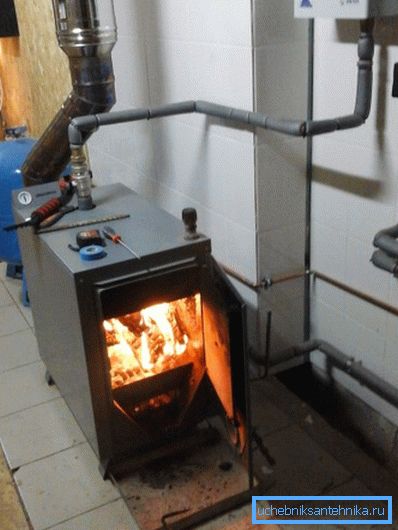
When are other options needed?
Very often, planning an independent arrangement of a country house, the site owners are interested in what kind of heating is cheaper - gas or electricity?
In fact, this question can only be answered after a full analysis of the whole situation, since the amount of financial expenses largely depends on the conditions in your area:
- If we talk about the most common cases, the heating is cheaper to find the main gas is quite difficult. Yes, in the beginning it will be necessary to spend money on the installation of equipment, and on paperwork, and on connecting / connecting the pipe, but then the costs will be relatively small.
Note! This statement is true only for the Russian Federation. In other states, the picture can differ dramatically, even to the exact opposite.
- However, in remote areas gasification is absent in principle. In this case, you can use gas in cylinders, but then the financial costs will be quite large. So here it is worth thinking about installing an electric or solid fuel boiler.
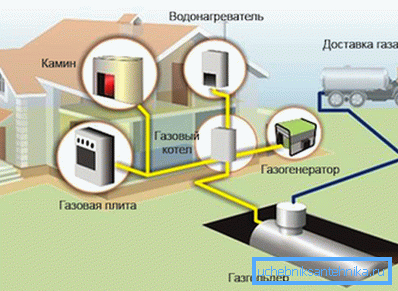
- It is also possible to abandon the "blue fuel" in areas with abundant forest vegetation. As a rule, the extremely low price of wood is typical for such plots, and therefore its use for heating will be fully justified.
- The transition from gas to other types of heating is carried out to improve the energy efficiency of the house. In this case, renewable sources of energy (solar panels, wind turbines) are usually used, because the gas boiler, if installed, is used only as a backup system.
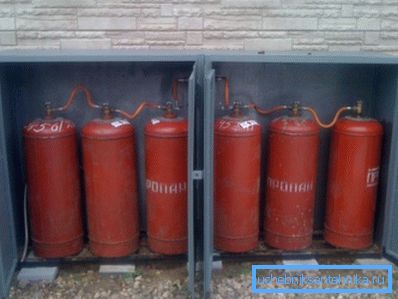
In principle, this list of situations described and limited. Below we look at the pros and cons of those heat sources that can be used instead of gas.
Alternatives
Electricity
If you look solely from a financial point of view, the heating with electricity compared to gas will be more expensive (about 2 - 2.5 times with comparable temperature parameters).
However, you should not immediately abandon this idea - there are electricity and obvious advantages:
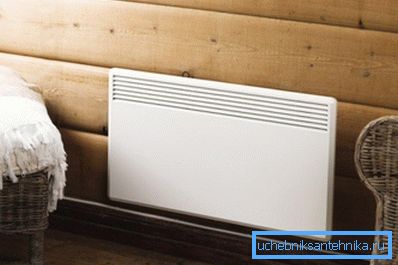
- First of all, the equipment itself is cheaper, and installation with certain skills can be done by hand.
Note! This applies only to internal communications. Connecting to power lines instruction allows you to perform only professional electricians with a high level of tolerance.
- Secondly, Modern electric boilers make it possible to perform very precise temperature control even without installing climate control systems. And if you mount such a system, the energy consumption for heating will be significantly reduced.
- Thirdly, the use of underfloor heating systems and infrared ceiling panels also provides significant savings. If in the case of gas we are forced to warm all the air in the room, then for electricity there is the possibility of distributing heat to the necessary areas.

Solid fuel
If you are looking for cheaper gas, and there are large woodworking enterprises in your area, then the installation of a solid fuel boiler may well be the way out:
- Heater working on wood or pellets (pressed briquettes made from wood chips) is rather inferior in efficiency to a gas boiler. So the amount of fuel needed to heat the room will be higher.
- Also, the disadvantages of this technology include the need for regular loading of fuel into the chamber, where it is burned.
Note! To date, there are solid models with automatic feeding of combustible material, but they are not cheap.
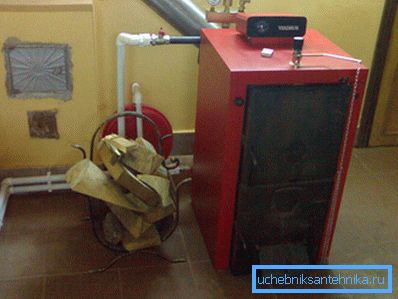
- On the other hand, with access to cheap wood, the savings can be enormous. Ideally, the cost of heating will be close to zero, excluding the cost of transporting firewood and preparing the material for laying in the boiler.
- From the point of view of ecology, this method is also more preferable: when burning wood, less toxic products of combustion are emitted.
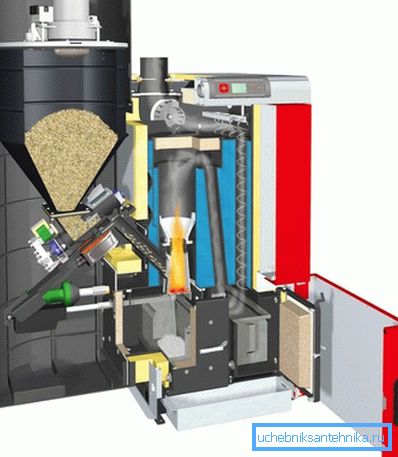
Modern technologies
The use of renewable energy sources is another modern alternative to gas (see also the article Navien gas-fired boilers: structure and technical characteristics).
In this case, heating devices usually operate on electricity, but it is produced by the operation of various devices that exploit natural resources:
- If your site is located on a hill, then a windmill can be installed to generate electricity. The turbine, mounted on the mast, will generate electricity, which can be used, including for heating.
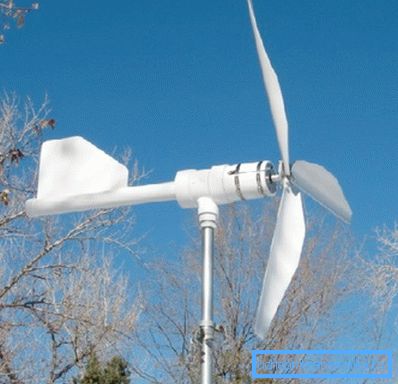
Note! In this case, you need to purchase a sufficiently capacious battery, since the performance of the system is directly dependent on the strength of the wind.
- In southern regions, solar collectors or photovoltaic panels can be installed on the roof of houses. Intensively accumulating heat energy during the day, they charge the battery, which is used to heat the room and other needs.
- Finally, you can install a heat pump that will pump the coolant through a special probe located deep in the soil. At the same time, due to the temperature difference, surplus energy is generated, which is most often used for heating.
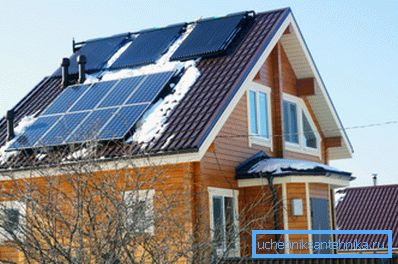
However, the disadvantage of these technologies is some instability, because usually either a diesel generator or a solid fuel boiler is installed as a backup system.
Conclusion
As you can see, there is not one alternative to gas heating. At the same time, it is not always possible to replace gas with another type of fuel without financial losses, so before making a decision, you need to carefully think about it and perform at least preliminary calculations on tariffs that are relevant in your region (see also Installing gas heating boilers: 4 steps to heat and comfort in the house).
In order to get acquainted in detail with the heating systems described in the article, we recommend viewing the video attached to it.